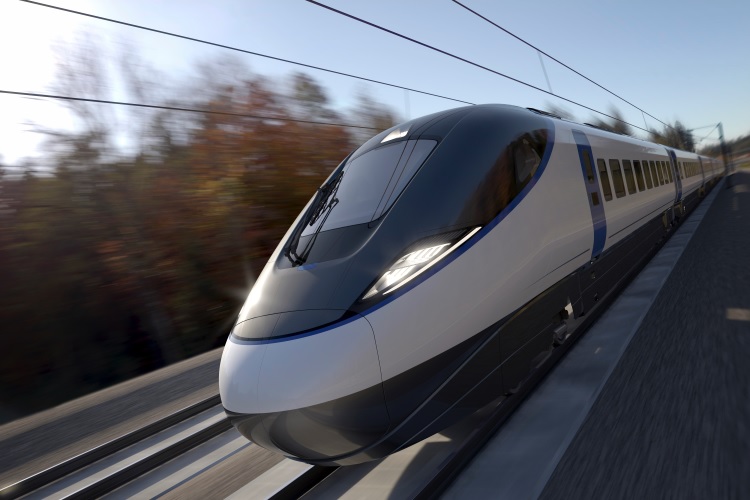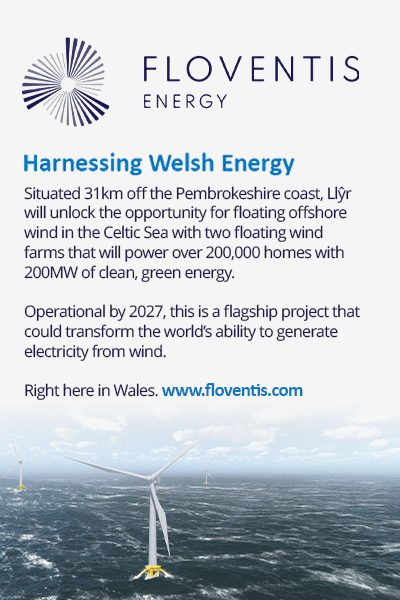
WRITTEN BY:
Ian Price,
Director,
CBI.

Key infrastructure projects such as railways and motorways are pivotal for Welsh businesses delivering goods and services, regardless of whether they are using the Severn Estuary, A55 Flintshire corridor, A40 or travelling by train from Holyhead.
The government’s announcement last week that it was scrapping the second leg of HS2 between Birmingham and Manchester – and reinvesting the £36bn savings on a new Network North initiative to improve transport connections – is dominating the UK political agenda.
It follows the Welsh Government’s decision in February that every major road building project, and plans for a third Menai bridge, would be scrapped on environmental grounds after the National Transport Plan’s Roads Review.
Businesses and investors in North Wales, particularly along the Flintshire-Deeside corridor, were reliant on the second leg of HS2 to improve rail connectivity, via the proposed interchange at Crewe, with the Midlands, the North, London and the South East.
Marie Hinfelaar, Wrexham University’s vice chancellor, was among the North Wales leaders to voice disappointment at the decision. She argues that HS2’s links to the north of England and London would have increased the university’s intake of international students.
Firms believe a fully-fledged HS2 was a real opportunity to deliver high quality, faster connections between major cities in the North, East and West and onwards to the devolved nations, London and the South East, freeing up vital capacity and embracing the ambitious Northern Powerhouse Rail.
Ideally, HS2 should be a signal of the UK’s ambition to build a high growth, competitive and sustainable economy.
Our country has incredible strengths as a destination for investment. When global boardrooms weigh up where to place their money, the UK was always seen as a safe harbour due to our reputation for reliability. But the decision to cancel the rest of the HS2 project sends a damaging signal about the UK’s status as a global destination for investment.
And there’s another benefit from infrastructure projects like HS2. They help the UK’s transition to net zero by encouraging people onto low carbon transport freeing up roads.
In our submission ahead of the Chancellor’s Autumn Statement next month, the CBI are calling for a transition to sustainable growth that includes recognising the UK’s unrivalled net zero opportunities for industry. This includes a new Net Zero Investment Plan, a targeted ‘green’ super-deduction for both incorporated and unincorporated firms.
Although the government is understandably concerned about rising HS2 project costs, I believe there is a pressing need for reliable fast connections between North Wales and England’s North, North East, West, the Midlands and London.
Some 30,000 posts have been created across the supply chain by HS2. The next leg would have kick-started further employment opportunities and boosted upskilling and retraining at a time when freeports are being built in Anglesey, Neath Port Talbot and Milford Haven.
I welcome the Secretary of State’s announcement that £1billion will be earmarked from the HS2 cost savings for the electrification of the Crewe to Holyhead Main Line. This will benefit the Anglesey freeport.
But the ‘start from scratch’ approach that is being proposed risks leaving businesses in a holding pattern of poor connectivity and low productivity, whilst Network North’s numerous projects are scoped, prepped and finally delivered.
The CBI believes the UK can lead the global race to reduce emissions. HS2 has the potential to unlock connectivity across North Wales and help us deliver the green growth prizes that could reap a £37-57 billion boost to UK GDP by 2030.
The UK Government and Tata Steel’s joint £1.2bn commitment to build electric arc furnaces at Port Talbot safeguarding the site’s future is a good example of this approach.
I do not believe we can always outspend some of our G7 peers. But the Welsh Government, working with their UK counterpart, can outsmart them by investing in strategic infrastructure that places us at the forefront of the net zero race, and where a sustainably growing economy for Wales is the priority.




